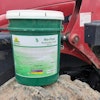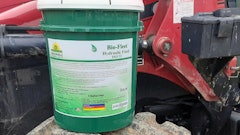
If there are any doubts whether mixed oils and greases will have a negative effect on machinery, have the viscosity and additive concentrations tested or simply throw out the mixture. It is probably not worth the health of the machinery.
When different types of oils and greases are mixed together, it can spell disaster for machinery. This is why it’s best to avoid mixing lubricants.
Several factors will determine whether you have an expensive mistake or a close call that you can hopefully learn from and mitigate in the future.
These key factors include the volume of the oils that have been mixed together, the types of base oils that have been mixed, the types of additives that were in the base oil, and how the viscosity has been affected.
Read the entire article, "What to Consider When Lubricants Mix", originally published on Noria.com.






![[VIDEO] A HYDREX Performance Demonstration: Cruickshank Construction](https://img.forconstructionpros.com/files/base/acbm/fcp/image/2016/04/default.5717d26ea13cc.png?auto=format%2Ccompress&fit=crop&h=167&q=70&w=250)












